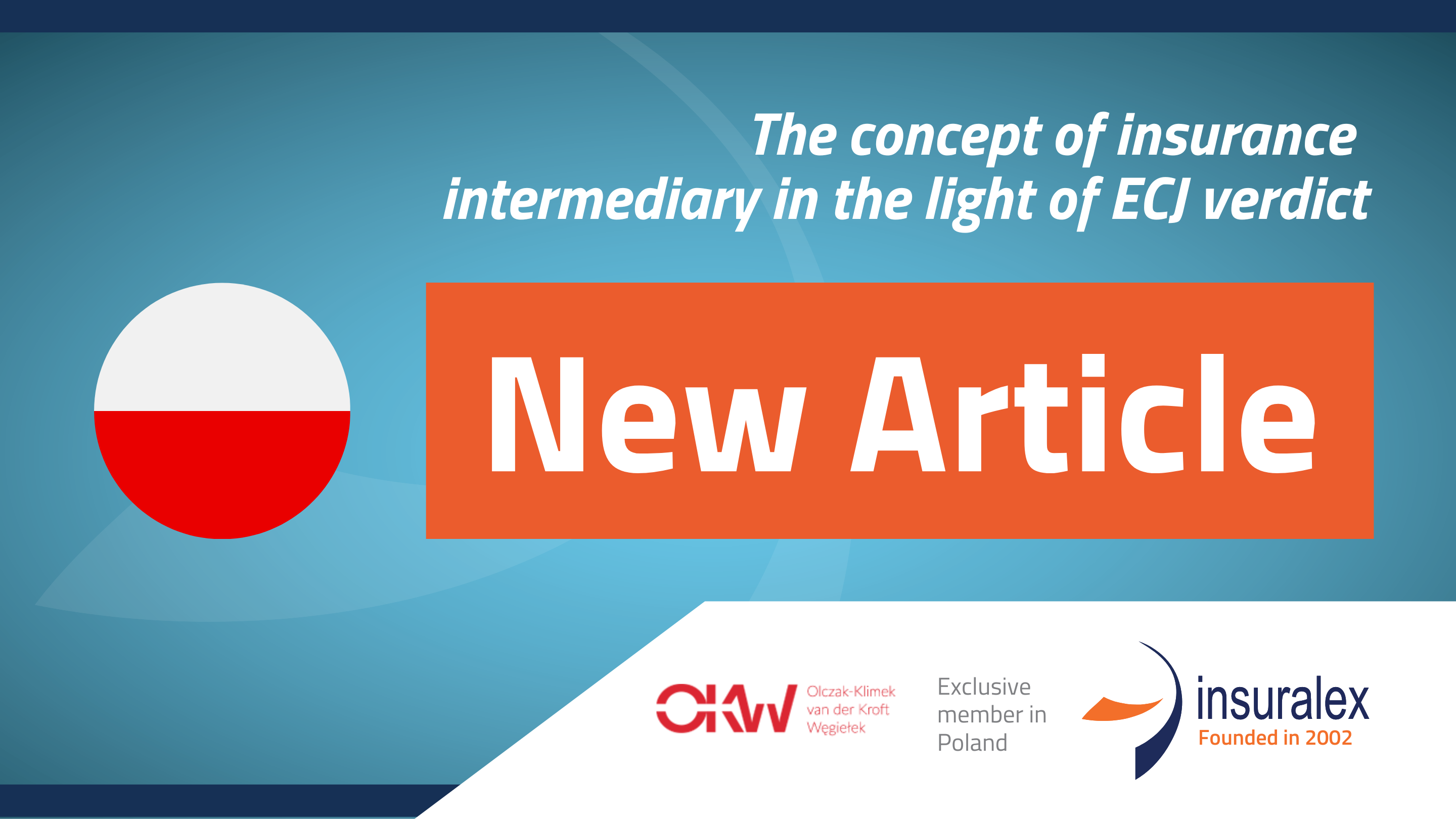
The concept of an insurance intermediary – is the market facing radical changes?
IDD is a commonly used acronym for Insurance Distribution Directive, or Directive 2016/97 of the European Parliament and of the Council (EU) of 20 January 2016 on insurance distribution, which was implemented into the Polish legal area as the Act of 15 December on insurance distribution (the Act). The Directive itself is a kind of guidepost that defines the standard for serving customers and safeguarding their interests and rights when offering insurance products.
On the basis of the directive itself, which may seem a bit abstract due to the diversity of the legal systems of the Member States, but due to the Act in force in Poland, the notion of insurance intermediary defined therein may parent some doubts especially in light of the judgement issued by the European Court of Justice (ECJ) on 29 September 2022 on the German request for a preliminary ruling on TC Medical Air Ambulance Agency (TC Medical Judgement).
The definition of an insurance intermediary, the numerous obligations imposed on it are intended by the Act to protect the recipients of intermediary services and emanate from the principle of equal treatment of entities operating in a specific market. All insurance intermediaries, wishing to perform just this activity, must meet the same requirements. Thus, the provisions of the Act protect competition in the market for these services and their recipients, including consumers, from the actions of entities claiming to be intermediaries or whose insurance intermediation activities are disguised under other activities.
In the Act as well as in the IDD, a policyholder who enters into an insurance contract, including a group insurance contract, for their own or someone else’s account is not considered an insurance intermediary.
In a judgement dated 29 September 2022 the ECJ addressed the question of whether the concept of an insurance intermediary or distributor within the meaning of the IDD also includes a legal person whose business is to offer their customers to voluntarily join, for the remuneration they receive from them, a group insurance contract that they have previously concluded with an insurance company.
The case involved TC Medical Air Ambulance Agency GmbH, which offered consumers to join group insurance for a fee. The company charged a fee to those joining the insurance. The insurance itself, on the other hand, concerned coverage for the risk of illness or accident while travelling abroad, as well as insurance for the costs of domestic and international transportation to the place of residence. The company entered into a group insurance contract with the insurance company as the policyholder in this regard. The consumer protection association considered the company’s activities to be anti-competitive, and as a result of litigation and conflicting case law, the Federal Court of Justice ruled that in order to decide the case, it was necessary to determine whether a group insurance policyholder – in a case such as the one described – was an insurance intermediary.
In the ruling, the ECJ acknowledged that even if the concepts of insurance distribution or insurance intermediary do not explicitly mention such activities as described, “the definitions contained in these provisions must be understood as covering such activities. The ECJ further stated that, “such activities are comparable to the paid activities of an insurance intermediary,” and since this is the case, an entity offering such products or services should meet the same requirements as other intermediaries, including, i.e., obtaining a license, registration, organizational filings and a number of others. The ECJ has made it clear that all insurance distributors should be subject to the same requirements, and consumers purchasing insurance products regardless of the distribution channel should be guaranteed protection at a uniform level.
At present, it is difficult to judge whether the ECJ ‘s interpretation will become universal. If this happens, there could be significant perturbations for entities offering group insurance. It should be emphasized that, according to current Polish regulations, in insurance for someone else’s account, especially in group insurance, the policyholder may not receive remuneration or other benefits in connection with offering the opportunity to take advantage of insurance coverage or activities related to the execution of the insurance contract. This does not preclude the insured from committing to the policyholder to finance the cost of the insurance premium.
Thus, on the basis of the ECJ ruling in question, a situation may arise in which payment of the cost of the insurance premium by the insured, will be considered as offering customers to voluntarily take out insurance, for remuneration. In such a situation, entities offering such insurance will become insurance intermediaries, which will require them to comply with the provisions of laws regulating insurance intermediaries. Observation of the ECJ ‘s jurisprudence in this regard seems necessary, as does the market’s reaction to the ECJ ruling itself in other EU countries. After all, if this interpretation becomes the leading one, we should prepare for significant changes and adapt to them well in advance.



